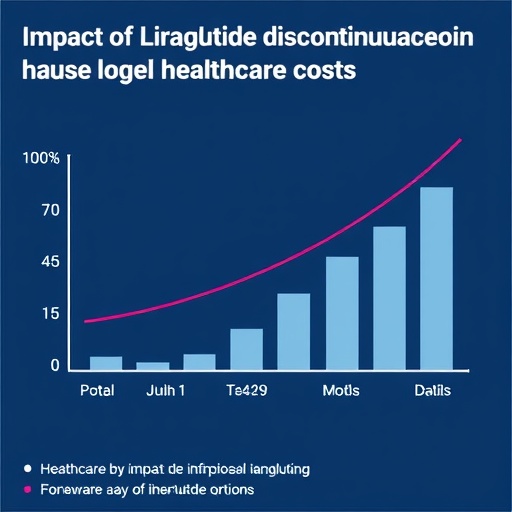PROTECT YOUR DNA WITH QUANTUM TECHNOLOGY
Orgo-Life the new way to the future Advertising by Adpathway
In the rapidly evolving landscape of healthcare research, the need for robust and reliable health research protocols has become increasingly imperative. As healthcare systems around the world face complex dilemmas ranging from resource allocation to ethical considerations in patient care, the methodologies guiding these investigations must be both comprehensive and adaptable. This is where the work of Stoeklé and Hervé makes a significant contribution, providing a template that not only aids empirical bioethics but also serves as a cornerstone for varying forms of medical inquiry.
At its core, the article titled “Health research protocols: a template for empirical bioethics and other investigations” is grounded in the need for structure in healthcare research. Stoeklé and Hervé elucidate the foundational elements that constitute an effective research protocol, emphasizing the importance of clarity and rigor in the design of studies aimed at addressing pressing health issues. They argue that protocols must not only outline the methodological steps clearly but also incorporate ethical considerations that respect both researchers and participants alike.
The authors delve into the use of empirical bioethics, which aims to bridge the gap between theoretical ethical frameworks and practical health research. By providing concrete case studies, they demonstrate how ethical principles can be seamlessly integrated into the research design. This ensures not only adherence to ethical standards but also enhances the credibility of the findings. Their argument underscores the necessity of viewing ethics as an integral component of the research agenda rather than an afterthought.
Moreover, Stoeklé and Hervé stress the significance of stakeholder engagement in the research process. Engaging with patients, healthcare professionals, and policymakers not only enriches the research but also aligns it more closely with real-world applications. This participatory approach enhances the relevance of research outcomes and fosters a greater understanding of the ethical complexities involved. By advocating for inputs from diverse stakeholders, the authors suggest that research findings can achieve greater acceptance and facilitate smoother implementation in clinical settings.
An important aspect that Stoeklé and Hervé address is the importance of interdisciplinary collaboration in health research. The challenges faced in healthcare are multifaceted, often requiring insights from various fields such as sociology, economics, and psychology. By fostering interdisciplinary cooperation, they argue, researchers can develop more comprehensive protocols that address the complexity of health-related questions. This collaboration can lead to innovative solutions that draw upon a wide spectrum of expertise, ultimately enhancing the quality of research.
Additionally, the authors highlight the critical role of transparency in health research protocols. Transparency not only encompasses the clarity of methodology but also the disclosure of potential conflicts of interest and funding sources. By adopting a transparent approach, researchers can build trust with their research population, thus ensuring that participants feel confident in the integrity of the study. This trust is paramount, particularly in studies that involve vulnerable groups who may be apprehensive about participation.
In discussing the challenges that researchers face, Stoeklé and Hervé acknowledge the pressure to produce rapid results, especially in the context of public health emergencies. Whether during a pandemic or a health crisis, the urgency can sometimes lead to shortcuts or ethical oversights. The authors advocate for the establishment of adaptive protocols that can respond to urgent situations while maintaining ethical rigor. Such flexibility in research design can ensure that vital inquiries continue even under pressing circumstances.
Furthermore, the article touches upon the significance of pilot studies as a means to refine research protocols before full-scale implementation. Conducting smaller-scale studies allows researchers to identify potential pitfalls and areas for improvement, thereby enhancing the overall methodological soundness of the research. This iterative process not only strengthens the protocols but also minimizes the risk of ethical breaches, as researchers have the opportunity to make necessary adjustments based on initial findings.
Drawing from empirical examples, the authors illustrate how their proposed template has been successfully applied in various research contexts. They recount instances where the integration of ethical considerations into the research question formulation led to more nuanced investigations that recognized the implications of diverse cultural contexts. These case studies serve as compelling evidence of the efficacy of their approach and encourage other researchers to adopt similar frameworks.
Moreover, Stoeklé and Hervé provide guidelines on how to facilitate ongoing communication among research teams throughout the study duration. Regular discussions not only foster a collaborative environment but also promote adherence to ethical standards and protocol fidelity. The authors suggest techniques for enhancing team dynamics, including structured check-ins and shared digital platforms that allow for open dialogue among team members.
As the medical research field becomes increasingly data-driven, the authors bring attention to the ethical stewardship of data handling and participant privacy. Given the sensitivity of health data, they argue for stringent measures to safeguard participant information. Adhering to data protection regulations and implementing anonymization techniques are critical to preserving personal confidentiality while still enabling meaningful data analysis.
In conclusion, Stoeklé and Hervé’s article represents an essential contribution to the discourse on health research protocols. By intertwining empirical bioethics with meticulous research design, they provide a valuable framework that transcends traditional boundaries. Their advocacy for interdisciplinary collaboration, stakeholder engagement, and ethical transparency positions researchers to navigate the complexities of modern health challenges more effectively. As healthcare research continues to grow in significance, the call for multifaceted and ethically sound methodologies will remain paramount.
In embracing these principles, the field of health research can advance in ways that not only produce statistically significant results but also foster a deeper understanding of the societal implications of these findings. Only through rigorous protocols and an unwavering commitment to ethics can researchers hope to address the pressing health issues of our time and contribute positively to the evolving narrative of healthcare systems globally.
Subject of Research: Health research protocols and empirical bioethics.
Article Title: Health research protocols: a template for empirical bioethics and other investigations.
Article References:
Stoeklé, HC., Hervé, C. Health research protocols: a template for empirical bioethics and other investigations.
Health Res Policy Sys 23, 80 (2025). https://doi.org/10.1186/s12961-025-01362-4
Image Credits: AI Generated
DOI:
Keywords: Health research, empirical bioethics, research protocols, ethical considerations, stakeholder engagement.
Tags: adaptable research templatesbridging theoretical and practical ethicscase studies in health researchclarity in research designcomprehensive methodologies for health researchempirical bioethics in healthcareethical considerations in medical studiesethical dilemmas in patient carehealth research protocolsresource allocation in healthcare researchrigor in healthcare investigationsStoeklé and Hervé contributions


 8 hours ago
13
8 hours ago
13





















 English (US) ·
English (US) ·  French (CA) ·
French (CA) ·